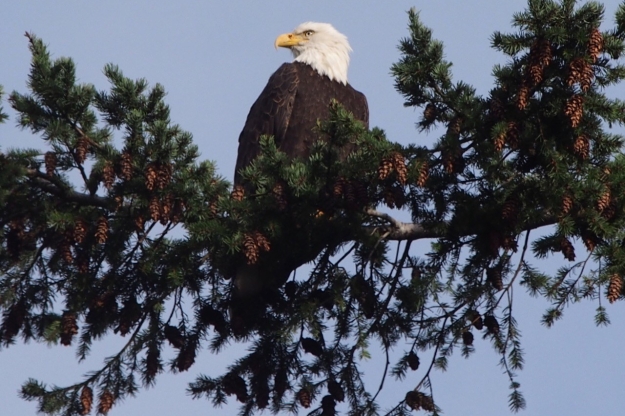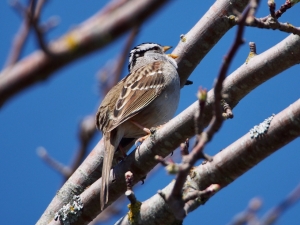
On March 23, 2019, the Natural History Society organized a two-part outing to explore Fort Flagler. First, Biological Technician Willie Richards led a late morning tour of the USGS- Marrowstone Marine Field Station. He explained their research on Pacific Herring and the focus on disease and pathology. Willie also told us about some of the highlights of his experience with USGS, including field sampling in Cordova, Alaska, and capturing wild Pacific Herring in the nearby waters of Puget Sound. For background on herring:
https://www.pugetsoundinstitute.org/2018/12/test-your-herring-knowledge/

After our tour of the USGS Field Station, we ate our picnic lunches and wandered a bit in Fort Flagler to look for seabirds and other birds. Naturalist and expert birder Ken Wilson guided our birding.
Eileen at JLTnatural@saveland.org provided details about when and where to meet, as well as information about disinfectants required before entering the USGS Field Station.
 On Monday, May 20, the JLT Natural History Society book club will discuss Eager by Ben Goldfarb.
On Monday, May 20, the JLT Natural History Society book club will discuss Eager by Ben Goldfarb. 


 In March 2019 the Jefferson Land Trust Natural History Society book club will read What a Plant Knows by Daniel Chamovitz. We will discuss the book at our meeting on Monday, March 25, to be held at the Charles Pink House (next to the Carnegie Library in Port Townsend), from 3:30-5:00.
In March 2019 the Jefferson Land Trust Natural History Society book club will read What a Plant Knows by Daniel Chamovitz. We will discuss the book at our meeting on Monday, March 25, to be held at the Charles Pink House (next to the Carnegie Library in Port Townsend), from 3:30-5:00.